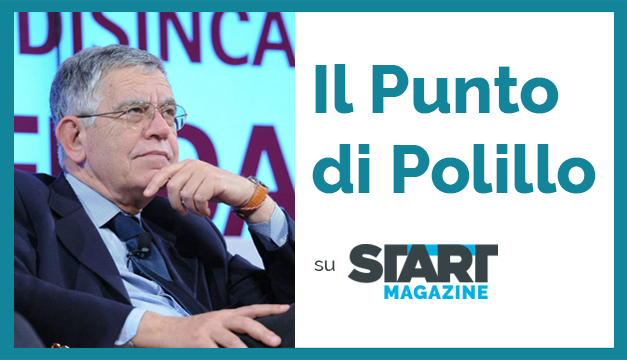What is going (and what is not) in the Appeal for the future of Europe signed by Meloni and Salvini

Gianfranco Polillo's opinion
"Who goes with the lame learns to limp" is an old adage of the Italian popular tradition. Does it also apply to politics? We wouldn't be so sure. On the contrary, in this field, elliptical chords are more of a rule than the exception. Otherwise you would not understand the sudden succession of two opposing majorities: the yellow-green one and the yellow-red one. With the Prime Minister himself at the head, in the figure of Giuseppe Conte.
Therefore, we will not follow the PD that cries out to scandal and denounces the inconsistency of those who, like Salvini, want to “be at the same time with Draghi's Europeanism” and with Orban: as Enrico Letta thundered. This does not mean not having more than one perplexity about the text ("Appeal for the future of Europe") just signed between Matteo Salvini himself, Giorgia Meloni, Viktor Orban, the Austrian Fpoe, Marine Le Pen and another ten of European leaders, all belonging to the sovereign side.
It is the internal contradictions of that document that are not convincing. Its analytical weakness that is transformed into the fragile foundation on which we would like to build the proposal of a Europe that is not better defined. A Europe that was a collage of nation states. A sort of Confederation: even if such a perspective, which would at least have the merit of clarity, is never evoked.
The premises of the document are perfectly acceptable. They talk about the most recent history. Of the long journey towards independence both nationally and with respect to Soviet rule. Hence the “integration process” which “has done a lot to create lasting structures of cooperation and to maintain peace, mutual understanding and good relations between states. This work must be maintained as a value of epochal importance. "
Then the logical leap. "However, the series of crises that have shaken Europe over the past decade have shown that European cooperation is faltering, especially as nations feel slowly being stripped of their right to exercise their legitimate sovereign powers." Frankly, we would have thought otherwise. If a criticism is to be made it is of the opposite sign. The ECB and the European Commission, following the American example, could perhaps have done more to deal with an exogenous shock, such as that of the pandemic. Other than the proposal to leave the individual states alone in the exercise of their "powers".
Faced with peoples who yearn and fight for their freedoms, "the EU is increasingly becoming an instrument of radical forces that would like to carry out a cultural and religious transformation, to achieve the construction of a Europe without nations, aiming at the creation of a European Superstate, to the destruction or cancellation of the European tradition, to the transformation of social institutions and fundamental moral principles ”. Absolutely incomprehensible in its logical development.
Who are these radical forces? The left? It may well be, but we are still in the middle of that political – cultural conflict which is the heart of democracy. Which can be averted by participating in the battle with different positions. And instead the document attributes to an unspecified entity – a sort of "specter" – the power that historically belonged to a dominating state. This was seen in that European history that the document recalled at the beginning.
Does the eventual Confederation, as long as this is the underlying model in the document and not the generic exaltation of the nation state, bring this prospect closer or further away? Paradoxically it brings it closer. Because its functioning is based on a sort of hierarchical order in which one or more states, in agreement with each other, dominate the rest of the Confederation. The history of the United States, before becoming a federal state, thanks to the so-called “Hamiltonian moment”, should teach us something.
The concerns of the drafters of the document should therefore be in the opposite direction. In the federal system, in fact, the central power is organized on a political basis. It presupposes a democratic participation that certainly cannot nullify the differentials in the power relations between the various protagonists, but limit their relative weight. In the way the EU works, this concern has been felt to the point of requiring the unanimity of the member countries for all the most important decisions. Even at the cost of making the procedures necessary to reach any compromise relax.
The rest of the document is affected by this erroneous initial setting. The result is proposals on which one can only agree, but also judgments that are not confirmed in reality. “Through a constant reinterpretation of the treaties by the institutions of the European Union – it continues – in recent decades”, a series of delimitations have been created that “have moved significantly to the detriment of the states”. Which is undoubtedly true. But what is the source of these "delimitations"? Perhaps the work of the Brussels bureaucrats, or the more or less discreet presence of the States, of which those subjects are nothing more than their "spokespersons"? Otherwise we would not understand the reason for that Franco-German axis, which, in all these years, has dominated the scene.
Too bad, then. So far the League culture, with its pragmatism, has called everyone to a principle of reality, in open conflict with the ideology of many dominant positions. The critical reading of the document, which has just been signed, shows that this approach was part of the necessary conditions, but unfortunately still insufficient. Compared to a past in which the exit from the euro was simply theorized, a step forward. But others will have to be accomplished.
This is a machine translation from Italian language of a post published on Start Magazine at the URL https://www.startmag.it/mondo/cosa-va-e-cosa-non-va-nellappello-per-il-futuro-delleuropa-firmato-da-meloni-e-salvini/ on Sun, 04 Jul 2021 08:15:49 +0000.
